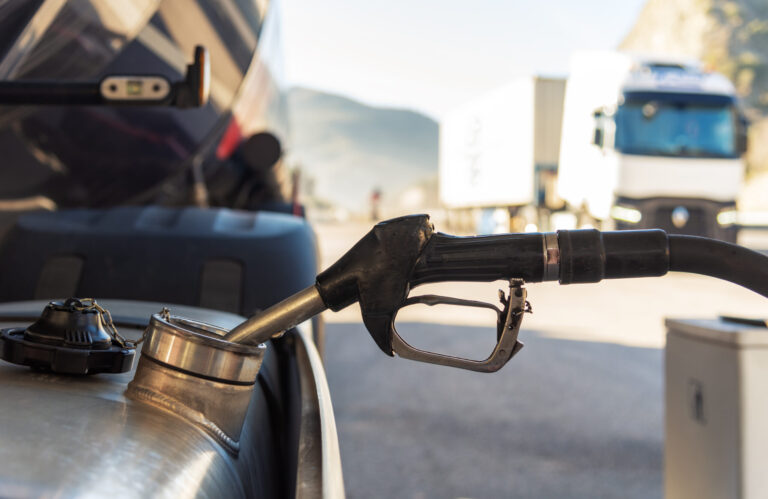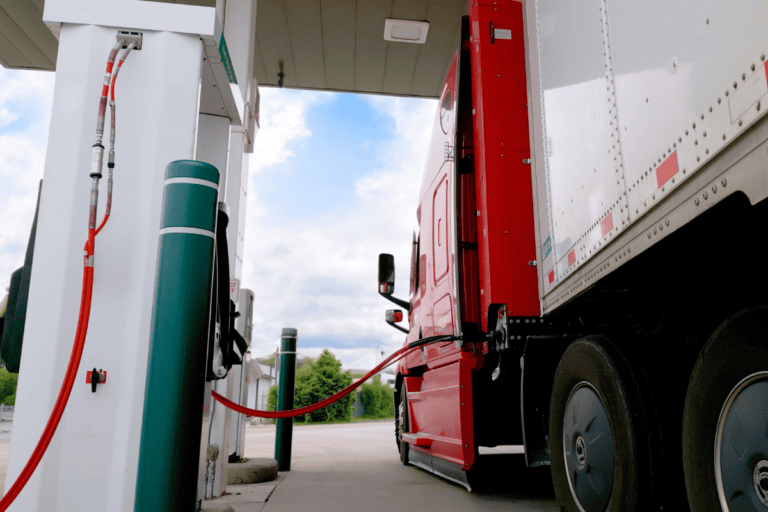
May 1, 2025
Whether you’re a renewable natural gas (RNG) producer or dispenser, you’ll eventually have to answer the same question: how do you plan to handle gas compliance? Compliance is the backbone of the RNG industry, and it’s not just about checking boxes. The stakes are high, and mistakes can be costly, both in time and money….

January 7, 2025
Energy, fuel, and tax credits are anything but exempt from legislation and regulatory changes. As we flip to 2025 and the Trump administration takes office, there are many policies (new and old) that stand to impact the energy sector. Below, we’ve outlined five proposed regulatory changes worth watching. 1. 25% Tariff on Canadian Imports The…

November 19, 2024
Seasonality impacts many things, one being fuel. As temperatures begin to drop, fuel grades switch over (in the case of diesel) from summer to winter grade. While fleets in some climates may not require a winter grade, those operating out of the northern US (or colder climates) do. But what’s the difference between these options?…

September 5, 2024
When people hear “small business,” many think of the cafés and restaurants along Main Street, the neighbor selling homemade jewelry from the store down the road, or the shop that makes soaps and candles in-house. What many don’t think of are gas stations. But it’s true. Select convenience store brands are owned by small business…

March 28, 2024
In efforts to accelerate the state’s transition to zero-emission medium- and heavy-duty vehicles, the California Air Resources Board (CARB) drafted its Advanced Clean Trucks regulation (ACT rule) and Advanced Clean Fleets regulation (ACF rule). In short, the ACT rule sets zero-emission vehicle (ZEV) sale mandates for truck manufacturers while the ACF rule sets purchase mandates…

March 7, 2024
Convenience store owners are constantly on the lookout—for new trends, offerings, and in this case, fuel theft. The Texas Financial Crimes Intelligence Center recently warned c-store owners of a new fuel theft method that could impact their site, regardless of what state they operate in. To help your c-store be better prepared, learn more about…

February 19, 2024
Selecting a jobber for your convenience store is an important decision, but it doesn’t have to be a difficult one. Who you partner with determines what resources, support, and growth opportunities you’ll have. To guide that process, here are five questions you should ask when looking for a new jobber. 1. Does Your Jobber Offer…

January 10, 2024
For shippers and carriers alike, diesel is a time-tested, reliable fueling solution. However, as more organizations evaluate the fit for alternative fuels within their fleets, looking to satisfy sustainability goals, they’re faced with a new set of considerations. Not only are there multiple options, but there is also conflicting messaging and uncertainty around each fuel’s…

November 9, 2023
As more organizations look to expand electric vehicle (EV) adoption within their owned fleets or provide charging accommodations to employees and customers, many are faced with the same question: how to implement EV infrastructure quickly. To meet 2030 goals, McKinsey & Company reports that the EV charging infrastructure network needs to grow by almost 20…

October 13, 2023
It’s no secret that the transportation industry has evolved over the past several years. The introduction of alternative fuels and policies regulating emissions brought with it new opportunities and obstacles that can leave fleets wondering what the best option(s) is for their organization. We will review comparisons, opportunities, and obstacles for each fuel type, specific…










